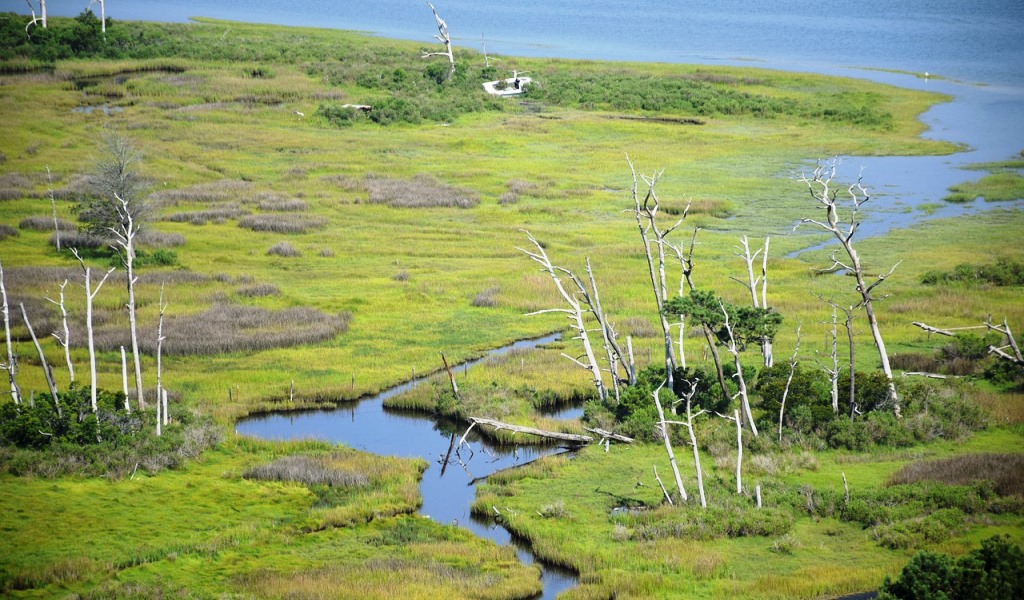On September 3, 2021 the U.S. National Science Foundation‘s Coastlines and People Program (CoPe) announced that it had awarded more than $29 million in new grants in fiscal year 2021. The goal is to help coastal communities become more resilient in the face of mounting environmental pressures.
Understanding the hazards coastal areas face requires input and insights from many groups. CoPe funding is bringing together geoscientists, social scientists, biologists and engineers to work on complex coastal problems.
“These projects are unique, community-built and embody the CoPe goals of broadening participation in science and fostering societally relevant coastal research,” says NSF CoPe program director Amanda Adams.
“The awards address coastal hazards from the Pacific Northwest to the Gulf of Mexico to the mid-Atlantic and engage communities from the densely populated Eastern Seaboard to tribal and rural coastal communities,” she added.
The efforts show that fundamental research can benefit society, and how we can all work toward greater safety, better resilience and more sustainable coastlines, Adams explains.
Coastlines are vital to our nation’s economy, security and well-being. Nearly 40% of the country’s population lives near a coast. Every year, that number increases. Coastal areas are under threat from extreme weather, sea level rise, coastal flooding, tsunamis, landslides, harmful algal blooms and other natural hazards that can damage housing, businesses, freshwater supplies, the electrical grid and transportation infrastructure.
The new CoPe awards, given to Hubs for Research and Broadening Participation, are for diverse, multi-institution projects that will tackle the hazards and issues coastal areas face. Hubs provide the opportunity for several groups to connect and participate in shaping the research.
The awards take a problem-solving approach to coastal hazards by fostering collaborations with those most vulnerable to the impacts. Many of these communities incorporate groups that historically have not been included in STEM fields. Hubs for Research and Broadening Participation involve stakeholder groups in the design and choice of science questions to investigate to broaden participation, increase stakeholder engagement, and increase the success of coastal hazards research.
Projects focus on coastal issues with widespread applicability. The results will address real-world complexities that can help federal partners, local authorities and coastal communities. At the international level, CoPe is endorsed by the U.N. Decade of Ocean Science for Sustainable Development.
Virginia example:
$5 million in CoPe funding went to an interdisciplinary team to create a Hub that will build community capacity in rural coastal Virginia for enhanced climate adaptation and resilience.
The project is led by Environmental Resilience Institute (ERI) Director Karen McGlathery at the University of Virginia (UVA), and brings together faculty from the College of Arts and Sciences, Engineering, Architecture, UVA’s Biocomplexity Institute, Equity Center, Institute for Engagement and Negotiation, William & Mary’s Coastal Policy Center, and ODU’s Resilience Collaborative.
These new CoPe awards, given to Hubs for Research and Broadening Participation, are for diverse, multi-institution projects that will tackle the hazards and issues coastal areas face. Hubs provide the opportunity for several groups to connect and participate in shaping the research.
Throughout the world, the economies and well-being of rural coastal communities are impacted by saltwater intrusion from accelerated sea-level rise and more severe storm flooding. At the same time, they face difficult challenges in responding to these climate risks, including lack of access to scientific information and expertise, lack of coordination among communities, geographical isolation, social inequities, unstructured governance, and limited institutional capacity. This is especially true in Virginia.
The ERI-led Coastal Futures Hub will address this inequity and information gap to improve climate adaptation and resilience on Virginia’s rural Eastern Shore. It will bring together scholars and stakeholders who will co-produce an open-source data and visualization platform, the Climate Equity Atlas, to enable sustained collaboration, and support equitable decision making and solution adoption on risks of flooding and saltwater intrusion.
Photo of Virginia’s Chincoteague Island by RGY23 from Pixabay.
See the list of the CoPe Hubs for Research and Broadening Participation (PDF).

